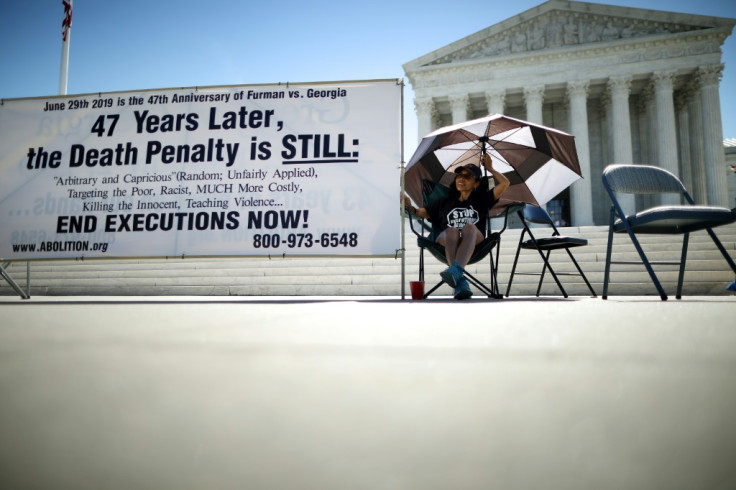US resumes death penalty executions after 17 years
The state of Indiana is set to execute its first inmate on death row after 17 years.
After 17 years since the last federal execution, Daniel Lee Lewis will be the first death row inmate to be executed this week in Indiana. This comes after the 7th District Court of Appeals overturned the ruling on Sunday from the lower court, where a federal judge blocked his execution on Friday.
The relatives of Lewis' victims filed a petition to delay, while threatening to sue over fears of exposing themselves to the coronavirus if they attend the execution. Chief Judge Jane Magnus-Stinson of the Southern District of Indiana granted the families' petition understanding that they wanted to attend, but travelling all the way to Indiana puts them at risk during an ongoing pandemic.
To their dismay, Sunday's ruling saw the injunction overturned even after one correction officer involved in preparing the execution at FCI Terre Haute tested positive for Covid-19. Justice officials said that the staff member has since left work and is currently self-isolating.
The department also reassured them that the correction officer did not come into contact with the execution team nor enter the execution chamber. Likewise, the officer has not personally interacted with the Crisis Support Team who are involved in transportation and logistics of victim witnesses.
Baker Kurrus, the lawyer representing the victims says, "The federal government has put this family in the untenable position of choosing between their right to witness Danny Lee's execution and their own health and safety."
He adds, "My clients hope the Supreme Court and the federal government will respect their right to be present at the execution and delay it until travel is safe enough to make that possible."
However, the Justice Department strongly points out that the family's health concerns "do not outweigh the public interest in finally carrying out the lawfully imposed sentence in this case. According to the BBC, they also stressed that no federal statute or regulation gives the victims the right to attend the execution.
It was on May 4, 1999 when Daniel Lee Lewis was convicted for three counts of murder in aid of racketeering and sentenced to death by the jury in the US District Court for the Eastern District of Arkansas.
Lewis, 47, along with his accomplice, Chevie Kehoe, robbed and murdered a family of three on January 11, 1996. One of their victims was an 8-year-old girl. He shot them with a stun gun and wrapped their heads in plastic bags and suffocated them by sealing each bag with duct tape. They were weighed down with rocks before before being tossed into the Illinois bayou. Kehoe is currently serving three life sentences without the possibility of parole.
Earlene Peterson, 81, recalls that her daughter Nancy and her husband Bill Mueller, along with their daughter Sarah Powell, were headed to a gun show in Oklahoma on the day they were murdered. Their bodies were found five months after they went missing. Ms. Peterson is also a vocal advocate against death penalty and has since been against Lewis' execution. She has even asked President Trump to commute the sentence of her daughter's killer to life without parole.
In an interview with CNN last year, Peterson said,"It would shame my daughter that someone has to die for her."
In a separate video statement she also said "I can't see how executing Daniel Lee will honour my daughter in any way. In fact, it kinda, like, dirties her name because she wouldn't want it and I don't want it. That's not the way it should be."

© Copyright IBTimes 2025. All rights reserved.





















